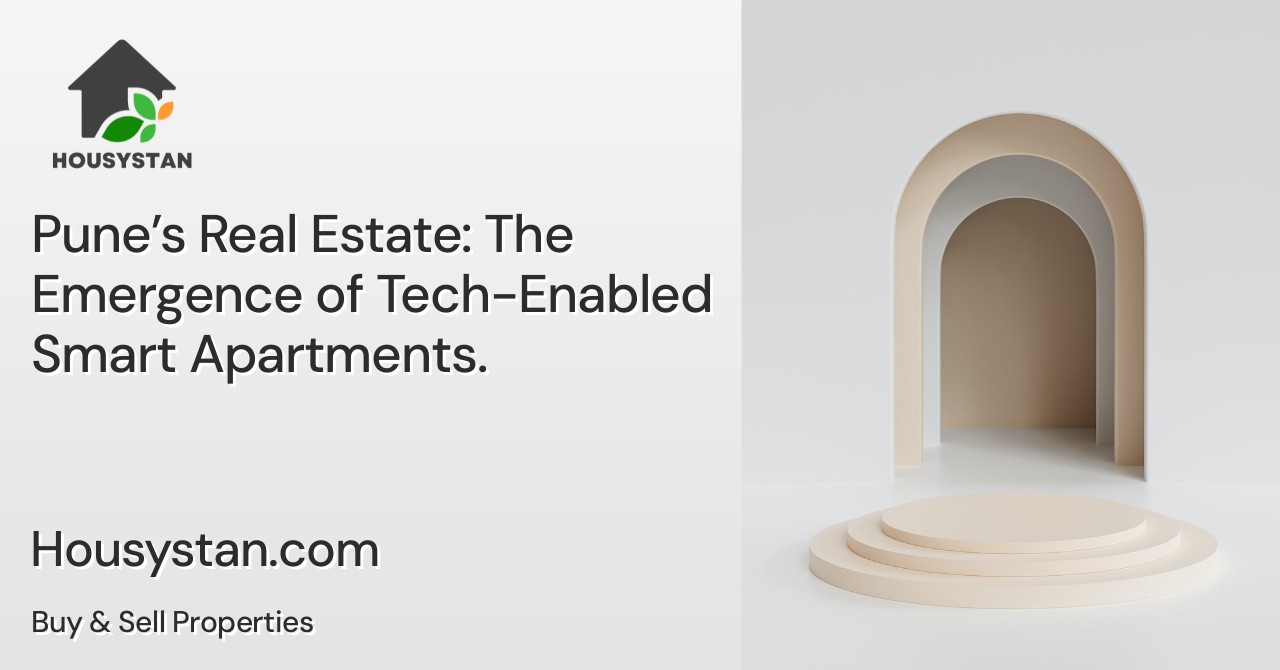Pune’s Real Estate: The Emergence of Tech-Enabled Smart Apartments
Read latest blogs and articles from Housystan

The Information mentioned here was last updated on:
29/1/2026Pune’s real estate sector is evolving rapidly, driven by the increasing demand for modern, intelligent living spaces. As one of Maharashtra’s fastest-growing cities, Pune is witnessing a significant transformation in residential architecture and lifestyle preferences. The rise of tech-enabled smart apartments is setting new benchmarks for comfort, convenience, and connectivity, making the city a hotspot for both homebuyers and investors seeking futuristic housing solutions.
The integration of advanced technology in Pune’s residential projects has redefined urban living. From automated lighting and climate control to robust security systems and energy-efficient appliances, these smart apartments cater to the needs of today’s tech-savvy residents. Home automation allows individuals to control various aspects of their living spaces through smartphones or voice commands, offering unmatched flexibility and peace of mind. This digital revolution is attracting professionals, families, and millennials who prioritize innovation, sustainability, and a seamless lifestyle.
Builders and real estate developers in Pune are increasingly focusing on smart features to differentiate their offerings in a competitive market. Many new projects in prominent localities like Hinjewadi, Baner, Kharadi, and Wakad are equipped with IoT-enabled devices, high-speed internet connectivity, and integrated security solutions. These enhancements not only elevate the living experience but also contribute to energy conservation and cost savings, positioning Pune as a leader in eco-friendly urban development. Prospective buyers are drawn to neighborhoods that offer a blend of technological sophistication and excellent connectivity to business hubs, educational institutions, and entertainment zones.
- Verified Tenants/Buyers
- Unlimited Property Listing
- Zero subscription/charges fee
Pune’s strategic location, coupled with a thriving IT industry and robust infrastructure, further amplifies the appeal of tech-enabled smart apartments. The city’s real estate market is responding to the demand for smarter, safer, and more sustainable homes by embracing innovation at every stage of development. As smart living becomes the new standard, Pune is poised to set an example for urban centers across India, offering residents a future-ready lifestyle and strong long-term value. If you’re looking to invest in a property that combines technology with comfort, Pune’s smart apartments represent the ideal choice for a modern, connected way of life.